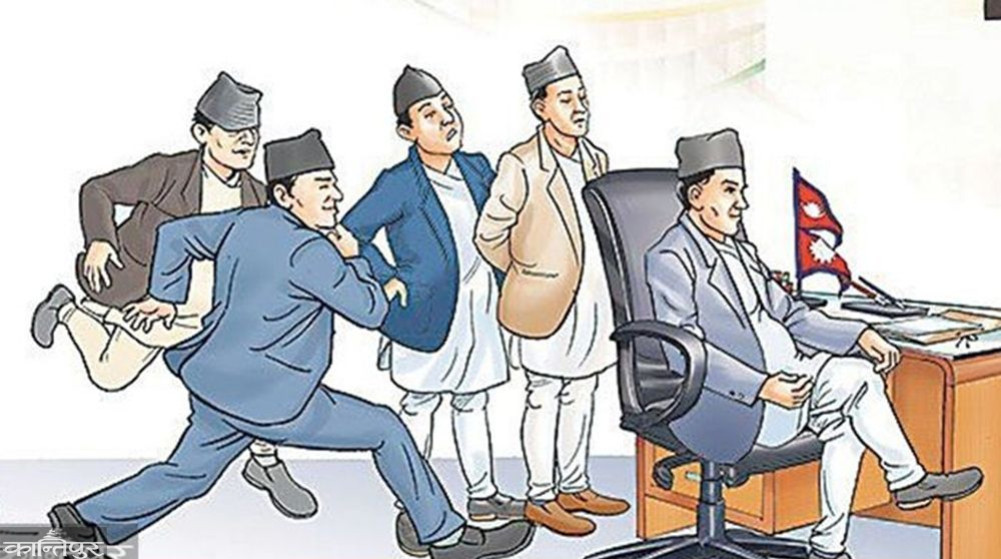Paytm on the verge of collapse
We use Google Cloud Translation Services. Google requires we provide the following disclaimer relating to use of this service:
This service may contain translations powered by Google. Google disclaims all warranties related to the translations, expressed or implied, including any warranties of accuracy, reliability, and any implied warranties of merchantability, fitness for a particular purpose, and noninfringement.


Paytm, the mobile payment service provider that pioneered cashless payments and the digital economy in India, is now on the verge of closure. From American billionaire Warren Buffett to Japan's Softbank Group, this application has been banned at some point.



How India's largest and leading digital payment gateway finally came close to collapse is now in the news.
Paytm played a significant role in making India accustomed to cashless transactions by introducing mobile payment services and QR technology to the masses. Paytm also helped in the business growth of small and medium entrepreneurs by providing easy and affordable cashless transaction facility to those who do not have a bank account. A local analyst says that Paytm has a role to play in bringing digital transformation to the economy of India through additional services such as online shopping, toll payment, travel booking, microloans.
Once upon a time, Paytm used to be the top sponsor in the national and international cricket tournaments of Ekta's India as far as its progress and influence was concerned. In 2019, Paytm's parent company, One97 Communications, renewed the top sponsor agreement for national and international tournaments till 2023 with BCCI for 3.268 billion Indian rupees, i.e. 38.0 million rupees per game. Paytm, which started its journey with a simple app to provide recharge services on mobile, has reached around 350 million customers in India through the payment banking system through wallet.
Paytm, which started as a startup in 2010, has grown to become a $25-30 billion company within a decade. The company's total valuation was announced at $20 billion when it issued an initial public offering (IPO) in 2021. Although the IPO was issued at 2,800 to 2,150 baht per share, the share price of Paytm fell as soon as it came to the secondary market. This week, trading is being done at 360 to 407 baru. Meanwhile, just a few days ago, Paytm founder Vijayshekhar Sharma expressed his gratitude to Paytm users for their tireless support on social media platform X saying that every problem can be solved and that they will continue to serve the country.
On the other hand, the regulator, the Central Bank of India (RBI), has banned Paytm's payments bank from January 31. Customers cannot upload money even in Paytm wallet, the existing money can be used. Paytm is completely barred from adding new customers. RBI has already instructed to stop the operations of Paytm Payments Bank from March 15. Since then, the number of customers has decreased, although it is said that a significant amount of money is being paid from the account, but the official data has not been made public. Paytm has been criticized for issues such as unauthorized provision of user data to the government.
Following the directive to close the payments bank, One97 Communications has applied to the central bank seeking permission to continue UPI-based transactions as a third-party application provider. Responding to the petition, the RBI has requested the National Payments Council of India to investigate the request. Paytm has also been continuously issuing advertisements on social networks and media to convey the message that the Paytm Payments service will continue and that it will operate as a payment service provider.
Analysts are of the opinion that regulatory, political and increasing competition in the market are the main reasons for the downward journey of Paytm, which has become a platform that is used daily by traders from large malls to retail shops and sidewalks. In 2018, 2021 and 2023, RBI issued severe warnings to Paytm for non-compliance with its instructions. During this, RBI pointed out that there are problems like submission of fake customer details in Paytm, violation of laws against money laundering, non-compliance of basic rules of banking including KYC. The RBI claims that the latest situation has come about after Paytm did not improve its working methods despite taking action such as not being able to add customers until these problems are addressed.
While expanding the service from wallet to payment bank, Paytm has opened accounts by transferring the wallet customer details to the payment bank without permission, according to RBI's study. The RBI has suspected cases of money laundering due to opening of accounts in wallets without the required verification of Customer Identification Form (KYC), KYC-beggars have allowed millions of customers to open accounts in their banks, thousands of customers have opened multiple accounts using the same PAN card, transactions of crores of rupees have been seen in some accounts. Paytm has been punished.
"On the basis of detailed system testing and compliance reports and as per the recommendations of the external auditor, action has been taken as Paytm has repeatedly failed to comply with the rules and the risks are increasing," RBI's statement said. Although Paytm currently has 350 million wallet accounts, about 310 million are not active and the remaining 40 million accounts do not have funds, so it is suspected that they may have been used in illegal transactions for money laundering.
In both the rise and fall of Paytm, India's economic-political maneuvers are another important factor, according to famous YouTuber Dhruv Rathi's analysis. The day after the Modi government announced that 500 and 1000 currency notes will not be circulated in India in 2016, Paytm printed an advertisement in all major media calling the decision the boldest political decision in the history of India. It was assessed that Paytm had the support of BJP in its campaign in support of Modi. Demonetisation played an important role in Paytm's market expansion.
Since then, Paytm founder Sharma, who has repeatedly raised slogans of nationalism and economic development, was in controversy after it was announced that he had taken a 25 percent share investment from Jack Ma's Chinese company, Ant Group. A target of critics due to India-China border disputes and economic conflict, he reduced Chinese investment in his company to around 10 percent by the end of 2023. However, Rathi says in his explainer video that credibility towards him and Paytm is eroding and regaining it is challenging.
This crisis of Paytm, which is considered as South Asia's leading and exemplary startup, has exposed the risk side of the emerging fintech sector. Indian-origin journalist Mithli Mukherjee has analyzed that the failure of companies like Bharatpay, Byjuz, Oyo, which started as startups and became unicorns, shows that the situation of startups in India, which is considered to be the most attractive consumer market in the world, is not as expected. According to a report, in 2023 alone, nearly 2,400 startups in India formally failed. Even Paytm, which is considered a 'giant' in its field, is struggling to survive, the latest incident has reconfirmed that it is equally important for startups to pay attention to financial rules and discipline along with the latest thinking.
– with the help of the agency
 प्रकाशित : फाल्गुन १९, २०८० ०८:१७
प्रकाशित : फाल्गुन १९, २०८० ०८:१७

 २१.१२°C काठमाडौं
२१.१२°C काठमाडौं
















